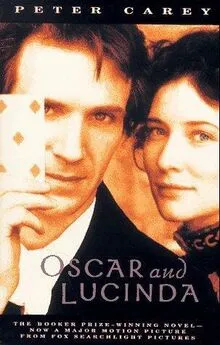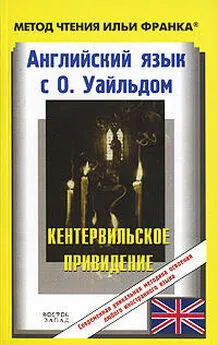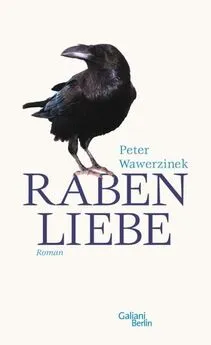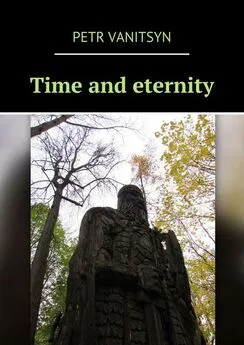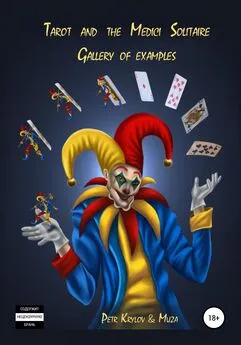Peter Carey - Oscar and Lucinda
- Название:Oscar and Lucinda
- Автор:
- Жанр:
- Издательство:Vintage Books
- Год:1988
- Город:New York
- ISBN:0-679-77750-4
- Рейтинг:
- Избранное:Добавить в избранное
-
Отзывы:
-
Ваша оценка:
Peter Carey - Oscar and Lucinda краткое содержание
The Booker Prize-winning novel-now a major motion picture from Fox Searchlight Pictures.
This sweeping, irrepressibly inventive novel, is a romance, but a romance of the sort that could only take place in nineteenth-century Australia. For only on that sprawling continent-a haven for misfits of both the animal and human kingdoms-could a nervous Anglican minister who gambles on the instructions of the Divine become allied with a teenaged heiress who buys a glassworks to help liberate her sex. And only the prodigious imagination of Peter Carey could implicate Oscar and Lucinda in a narrative of love and commerce, religion and colonialism, that culminates in a half-mad expedition to transport a glass church across the Outback.
Oscar and Lucinda - читать онлайн бесплатно полную версию (весь текст целиком)
Интервал:
Закладка:
"He is artistic," she said, "as, of course, you know." Oscar thought he detected a little belligerence in this sentence, and so did not remind her of the story she had told him not two nights before, of how Mr d'Abbs recommended Monsieur Huille, the drawing tutor whose cows had looked like pigs.
This was how Oscar came to return to Mr d'Abbs's office not two weeks after he had left his employ. He saw then, as he would see many more times before the glass church was loaded into its wooden crates, that it was an idea that had a strong attraction. There was hardly a soul who would not want to clasp it to their bosom, and even if they began, as Mr d'Abbs did, by making a mess with their cigar or their snuff, telling you sternly what an impractical idea it was, they always ended up in the same place, the place Mr d'Abbs came to on this sweltering December day, with a slightly silly smile on their face, a "by the deuce" on their lips, and, in Mr d'Abbs's case anyway, a plea (an assumption, Oscar thought) that he be permitted to draw up the plans for it himself.
"I could make the time available," said Mr d'Abbs. He opened his drawer and took out a single sheet of best white bond. He placed this sheet of paper in the middle of his desk. He opened another drawer and took out his French pen and then, on the paper, he made two or three fast strokes. He looked at those strokes appraisingly, his head on one side, and then looked up as if to say, "Not bad, not bad at all." Then, having satisfied himself as to his aptitude, he folded the paper into three, slid it into the breast pocket of his unseasonably hairy suit, and placed the pen carefully back inside the drawer.
Oscar bit his lip to hide his smile. He glanced sideways and saw Lucinda, sitting upright in her uncomfortable chair, looking as solemn as she did at morning prayer. She had decided to trust Mr d'Abbs a long time ago and did not seem likely to change her mind. This observation produced a razor-sharp corollary: her heart would remain similarly loyal to Hasset. So thought Oscar, squirming in his chair. He made a grotesque face, a caricature of agony. No one saw him. Lucinda was looking at Mr d'Abbs. Mr d'Abbs was now engaged with another piece of paper. This was a yellow sheet with green lines, of the type on which he was accustomed to make his notes (he called them "briefs"). He
335
Oscar and Lucinda
took out the pen again, unscrewed it, examined the nib against the glaring window light, pursed his lips so that his thin moustache buckled and let the tip of his pink tongue-like a tiny creature in a hairy shell-come out to sense the air.
"Now," he said to Lucinda, having ignored his ex-clerk from the beginning. "Now, what would be your intended congregation? That is the place to start with a church. It is one of the great mistakes made with churches. Too large and you have everyone feeling that the service is a failure. Too small and there is never enough in the plate to feed the vicar's family and then you are forever wasting your time with fêtes and benefits and all sorts of amateur theatricals, which are, in country towns, believe me, a chore to sit through. So this is the place to start, but it is a difficult thing to assess. It is more dependent on the quality of the sermon than the size of the parish."
"He speaks very well," Lucinda said, "and sometimes a little contentiously."
"Four hundred," said Mr d'Abbs, and wrote it down.
"It is only a little town," said Oscar whose own sermons had always been such an agony to him.
"One hundred, then," said Mr d'Abbs.
No one argued with him.
"And as to Doric and Corinthian, do you have a preference?"
"But, Mr d'Abbs," said Lucinda, leaning forward in her chair, "there is no Doric and Corinthian. It is to be constructed from glass and castiron rods, as I told you. We will not require this sort of support. The principle is the same, the same exactly as a glasshouse."
"Yes, yes, of course." Mr d'Abbs screwed the cap on his handsome tortoiseshell pen and laid it down beside his sheet of paper. "It's still a thing, ma'am, that you must decide. You look at it from the outside, as an amateur. Quite naturally, quite understandably, you do not imagine that it matters. It does not need to matter to you." (Oscar was offended on Luanda's behalf. He found the tone quite patronizing.) "But it must matter to me. It must matter a great deal. It is all a question of aesthetic laws. You may not see them, but they are there, just as the Ten Commandments are themselves not visible in this room."
"I'm afraid," Oscar said, "that I am quite bamboozled." Mr d'Abbs looked at him with great displeasure. It was an embarrassment to have an ex-clerk in this position. He was about to ignore the question when he saw that Miss Leplastrier expected him to answer it.
"It is a question of integrity," he said.
336
The Weeks before Christmas '
"In which way?" she asked. .•!>;.?;»,;
"In which way, what?",, — .<<(-, -;
"In which way can it affect the integrity?"
Mr d'Abbs took out his watch and looked at it. Then he uncapped his pen and drew a little diagram on his yellow paper. He was not an architect. Of course he wasn't. He had never claimed to be. But he had drawn things up. It was in his line. One begins with some conveyancing, and then a little financing is necessary, and a client, owning the land, then needs a building. This would be a dandy little church. A lovely thing. He would have an artist do perspectives, of course. He had never mastered the perspective, but it had not prevented him from designing the new portico for the Sydney Club, but that, by Jove, that was Corinthian, and wasn't it admired. Bishop Dancer had paid him a great compliment-"d'Wren" he had called him, phonetically a difficult joke to understand, and a little high-flown, but he had been flattered. There was no reason why this little church should not have a dome. By golly!
"It affects the aesthetics," said Mr d'Abbs. "I would recommend the Corinthian, and if you doubt my advice-and why shouldn't you? — I am only your accountant-go up to Castlereagh Street to the new Sydney Club and tell me what you think."
Oscar looked at Lucinda. She did not seem troubled that a pagan style should be used to celebrate Christ's death and resurrection. She seemed to have accepted Mr d'Abbs's proposition. She said: "The whole will be framed around glass sheets three feet long and eighteen inches in breadth. The main columns should be five inches in diameter, no more. Each individual column would weigh about three hundredweight, or so I am informed."
Mr d'Abbs smiled and nodded, but-unlike Mr Flood, the foundryman who was always making calculations with his callipers and adding and subtracting figures in his grimy notebook-he wrote nothing down.
Indeed he screwed his cap back on his pen.
Lucinda and Oscar sat side by side, like passengers in that contentious vehicle-the Pitt Street tram. They faced Mr d'Abbs who picked up the bell on his desk and swung it. He put it down again and smiled at them for all the time it took Mr Jeff ris to answer his employer's call.
"Mr Jeffris," said Mr d'Abbs, when the head clerk had, at last, arrived. "You are, are you not, a licensed surveyor?" He said this just as he had, on other occasions, wished an employee to assure him that he was (or not) a Greek scholar, a published poet, a concert pianist, the cousin of a duke.
337
Oscar and Lucinda
"I am," said Mr Jeff ris. He stood in the formal at-ease position and nothing in his demeanour gave any clue to what he felt about Mr Smudge's elevation. He did not look at him. He stood beside him, facing his employer.
"And have you surveyed the road to Boat Harbour?"
Mr Jeffris said nothing. He sighed, a rather bad-tempered sigh, and Mr d'Abbs, as if this sigh was the most sagacious answer imaginable, smiled proudly at Lucinda. Then, lifting a fmger, as though he were the conductor of an orchestra calling for a certain grace-note from a flute: "Is there a road to Boat Harbour?"
"No, there ain't," said Mr Jeffris, and Oscar, who had no fondness for Mr Jeffris, still felt sorry that he had made this slip. He was a man who had worked hard to eliminate his ain'ts.
"But surely," coaxed Mr d'Abbs, "one could muddle one's way through?" Mr Jeffris did not answer.
"You surveyed the road up into New England, is that not so?"
"I was employed thereon," said Mr Jeffris who was beside himself with rage at being required to act this part for the benefit of Mr Smudge. "I was under the direction of a Mr Cruikshank."
"But this road will not do?"
"It is a fool's way to travel," said Mr Jeffris, no longer able totally to disguise his feelings. "And the question is hypocritical because no one would choose to do it. You do not approach Boat Harbour by road but by the sea. There is a tricky bar, as everybody knows, but anyone would prefer the bar to the other."
"And what would you say to Mr Hopkins here, if he were to tell you his intention to go by land?"
"Beg yours?" said Mr Jeffris who was genuinely perplexed.
"Mr Hopkins intends to travel to Boat Harbour by land."
"No," said Mr Jeffris, too surprised to be bad-tempered any longer. He turned to look at Oscar who had the feeling that he was being seen by Mr Jeffris for the first time. "Is this so, Mr Hopkins?"
"I am afraid it is."
"And why not water?" said Mr Jeffris. His tone had changed. It was gentler. You could see the echo of it in his eyes.
"And why not water?" he repeated.
"I have my own reasons."
Mr Jeffris's normal mood was that of a man whose temper was a large rock balanced precariously on a rusty nail. His clerks were inclined to walk around him on tiptoe. But now, as he regarded Oscar, he
338
The Weeks before Christmas
somehow made himself go soft and calm. The rock lowered itself on to the sand.
"These reasons," he said gently, "would all be categorized under the label 'exploration'?"
"Oh, no," said Oscar, and giggled.
Mr Jeffris's forehead made a complicated frown.
"He refuses the steamer/' said Mr d'Abbs.
Mr Jeff ris did not even look at Mr d'Abbs. "And you must go?" he asked Oscar softly, so softly that Lucinda could not believe this was the same man she had thought a "dangerous dog" when he had come clicking across the clerk's office in his metaltipped shoes.
"For your own reasons," suggested Mr Jeffris, "you are compelled to make this journey?" Oscar smiled at Mr Jeffris. He did not smile because he was happy. He smiled because Mr Jeffris's manner had made him frightened of what he had taken on himself. He smiled because he wished to lighten the grave solicitousness of Mr Jeffris's expression. But Mr Jeffris would not comply. He looked at Oscar sadly, up and down, as if he were a beast at Homebush saleyards who must be called to shoulder a burden in excess of its strength.
"I would not be you," said Mr Jeffris, "for anything." Oscar felt his windpipe knotting. He stroked his long neck and turned his "smile" to Mr d'Abbs. Mr d'Abbs was pleased. He was pleased with the resources of his office. He was pleased to offer these services to his clients and give them free, gratis.
Читать дальшеИнтервал:
Закладка:
